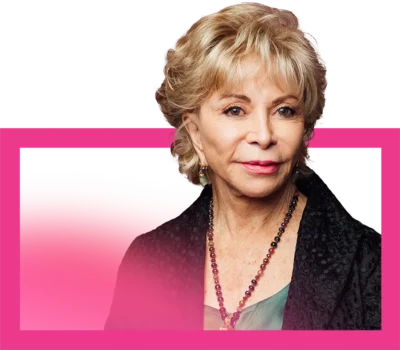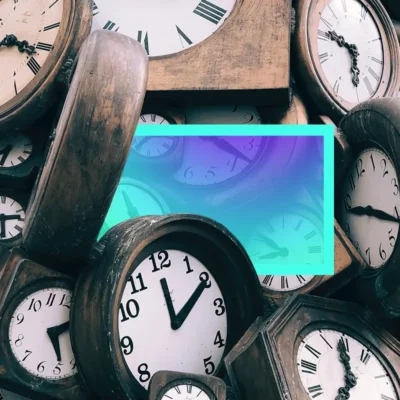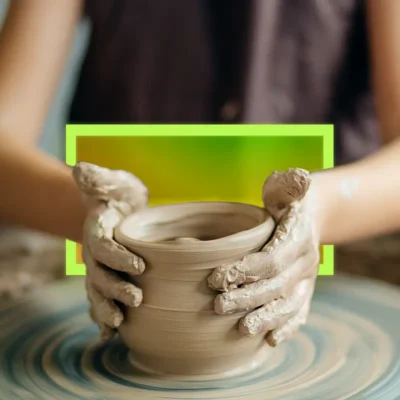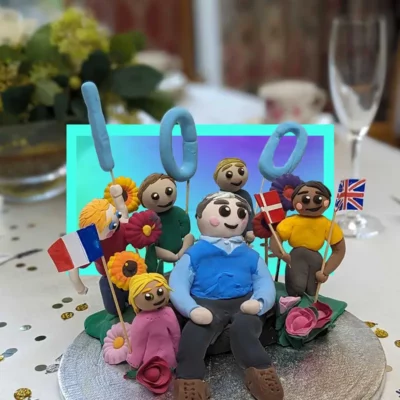From great loss, a great freedom
Best-selling author Isabel Allende has led an extraordinary life marked by moments of tragic loss. A coup in her home country of Chile forces her family into exile, and an unexpected illness takes away one of the most important people in her life. And yet, at 80 years old, Isabel feels a lightness that contradicts the attachment she felt in her youth. In this episode, Isabel teaches us how the most unbearable losses can sometimes offer the most profound gift: the freedom to live a joyful, fearless life.
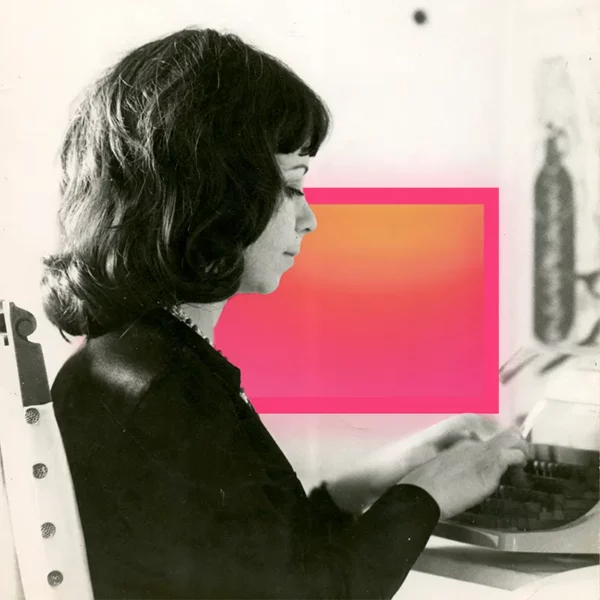
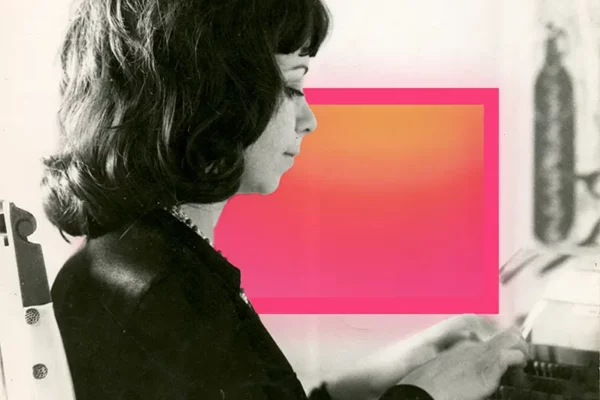
Table of Contents:
Transcript:
From great loss, a great freedom
ISABEL ALLENDE: My fingertips on the keys, I begin typing. What comes out are memories. Memories and stories my grandfather told me. Vivid descriptions of ancestors I never met, places in Chile I may never see again. In telling this story, giving it shape, the people and places become real to me again. There is still sorrow. But there is life too.
ROHAN GUNATILLAKE: Best-selling author Isabel Allende has led an extraordinary life marked by moments of tremendous loss. She rose to fame with her first novel, The House of the Spirits, which she wrote after fleeing her home country of Chile, following the 1974 coup. Now, at 80 years old, having confronted exile and the death of loved ones, Isabel feels a lightness that eluded her in youth. This week, Isabel shows us how the most unbearable loss can sometimes offer the most profound gift: the freedom to live a joyful, fearless life.
In this series, we combine immersive first-person stories, breathtaking music, and mindfulness prompts so that we may see our lives reflected back to us in other people’s stories. And that can lead to improvements in our own inner lives.
From WaitWhat, this is Meditative Story. I’m Rohan, and I’ll be your guide.
The body relaxed. The body breathing. Your senses open. Your mind open. Meeting the world.
ALLENDE: I’m in the backyard of my grandparents’ home in Santiago, Chile. The rough stone patio is lined with sprawling green shrubs and succulents. Towards the back, the stone gives way to a dusty fenced enclosure where the chickens and goat live. There are cats — wild cats — everywhere, and of course dogs. Our family always has dogs.
I’m nine years old, and I’m lingering near the steps of the house. I watch my grandfather across the yard. He’s dressed head-to-toe in black, just as he has been since my grandmother died. He stands near a large copper pot, the sides blackened by the open flame underneath. The dark concoction bubbles and thickens. The smell of burnt sugar fills the air. Blackberry jam.
My grandfather shoots me a stern glance, as if to say, “Don’t even think about coming over here.” But I already know better. The flame is hot. I’m terrified of getting burned. I avoid his gaze and skulk indoors.
Compared to the noise of the backyard, the house is quiet as a tomb. The hallways lead to dark rooms. Even some of the furniture has been painted black as part of my grandfather’s mourning. It’s a sad place, without light or joy. A house with no parties. No flowers. No dessert. No music. After living here six years, my mother and brothers and I still feel like guests.
My memories, before this house, are fragmented. My family is Chilean, but we live in Peru the first three years of my life, where my parents are diplomats. One day, my father disappears without a word, abandoning the family. Our lives change completely. At the time, in 1945 in Chile, there’s no divorce. In fact, Chile will be the last country in the world to get divorce, and that will be in 2004. So the situation is very strange and shameful. My mother’s not prepared to support three children. We move back to Chile to my grandparents house until things “get sorted out.” It all feels temporary. Uncertain. It’s never clear what “sorting out” even means. And now my grandmother is gone, too. I’m always afraid of what might come next.
It sounds pretty horrible. But it isn’t so horrible really. It’s the way it is. The idea that children have to be happy is a very modern idea. A very American idea. Why would children be happy? It’s a terrible time of fear, and you don’t have any control over anything. It’s usually, for most kids all over the world, not a happy time.
I run my hand along the wall in the dark hallway. Step lightly on the creaking floorboards. I stop at the threshold of my mother’s bedroom. She’s lying on the bed in the dark. Her eyes closed. She quietly moans.
I rush to her side and clasp her hand, clinging to her. “I’m here mamá. It’s ok.”
“My head hurts, Isabel.”
“I know, mamá. I know.” My eyes fill with tears. My mother is a very sensitive person. She’s always sick. I’m very attached to her. I press my hand to her forehead. Her clammy skin feels warm under my palm. I close my eyes in the darkness and pray. Pray that my mother will not die. Pray that she will not disappear like my father, like my grandmother. I can’t lose her, too.
From where we sit in the park, we have a perfect view of the lake. The sunlight shimmers on the blue-green water. Ferries and sailboats glide by in the breeze, buildings rise up behind them. Around us, tiny European cars drive down the streets of Geneva. I’m 23, here visiting my mother and my stepfather with my husband and our daughter. Paula.
My stepfather directs Paula’s attention toward the lake. “See that out there?” He points to the end of a long pier. “There is a geyser in the lake there, and I am its owner.”
Paula nods seriously as if to say, “Yes, that’s a fact.” She believes the fantasy completely. Unquestionably.
Paula is only two years old but she already is a little person. Dressed in a yellow and brown tartan jacket that I made for her — complete with matching hat — she looks like a little Sherlock Holmes. She doesn’t babble like a toddler. She speaks in short, clear sentences. “Don’t help. I can do it. Thank you.” I never teach her to be this way. She just is.
“Would you like to see it?” my stepfather says. He surreptitiously glances at his watch. The fountain in the middle of the lake, known as the Jet d’Eau, turns on at the same time every day. Paula doesn’t know this. She nods again. Eager to see the magic trick performed.
We count down together. “Five. Four. Three. Two. One.” A stream of water shoots 100 feet into the air. A perfectly straight line of white foam that dissipates into mist and a rainbow of refracted light. Paula looks up, amazed. She wobbles on the uneven grass. My heart skips a beat. I reach out to catch her. But she steadies herself on her own. She’s fine. She doesn’t want anything and never has. She’s enjoying the show. And my hand is shaking.
I worry about Paula. She’s so small. Always thin. The only thing she likes to eat is Coca-Cola. She’s a strange kid. And I am madly in love with her. She is the most important thing in my life.
From the moment she is born, I feel completely changed. After all the instability of my childhood, I find my place in the world. I have something that doesn’t feel temporary. I am a mother now to this little, generous person. I will always be a mother. My thoughts will not be about just myself ever again.
Paula is tired. She’s ready to go home. I reach out and grab her little hand. I hold on tightly. Sometimes the idea of separating physically from Paula is painful, even when I just have to go to work for the day. I am happiest when I am attached to her.
This visit to Geneva is like so many moves we made in my childhood, following my stepfather in his role as a diplomat. Every few years, we start from scratch, letting go of people and places and languages and friends and schools. But I’m grown now. And soon, we’ll return to Chile, our home, where my whole life makes sense. I have my marriage. My daughter. My career as a journalist. My charming little house, where my in-laws live next door. I see my grandfather every day. These things give me so much joy, a sense of stability. The idea of losing any of them scares me. But I’m not living in fear. I am finally rooted, full of energy, and surrounded by love.
GUNATILLAKE: This is a happy time in Isabel’s life, and she holds that happiness close. What’s something in your life that makes you happy? That, at this moment, you couldn’t imagine living without? Now, is there a world where yes, there is that love and connection with what makes you happy, but also where you’re able to loosen your grasp?
ALLENDE: It’s at night. I’m in our bedroom, frantically packing a small suitcase. We have so much here, photographs, music, books. Our dear possessions. I can’t bring it all with me. I grab a few dresses, socks, and blouses. Just enough to get me through a few weeks in Venezuela.
In the living room, the TV is on. A man in uniform dictates orders from the new Chilean military government. He reminds viewers of the curfew. Outside, a helicopter flies overhead and my body tenses. There has been a coup. Our stable democracy is gone. Our president, Salvador Allende — who was the cousin of my father — is dead. Everything is different now. I’ve learned that my name is on a blacklist. It’s not safe for me here anymore. We know friends who have disappeared.
I close my suitcase and snap the latch shut. Out of the corner of my eye, I see Paula standing in her nightgown in the doorway of my bedroom. Nicolás, my youngest, is at her side. I’m 32 and Paula is 13. Old enough to understand what is happening and so sensitive to the brutality of it all. That serious, talkative 2-year-old has grown into a gracious, generous girl. It pains me to leave my children, but, for the moment, Chile is still safe for them.
I walk over and kneel down. I hold my children tight. “It’s only for a little while,” I say. “This will be over soon.” Paula nods bravely. At this moment, I truly believe what I’m saying. Because the alternative, the loss of our warm and joyful home, is incomprehensible.
The kitchen is the only quiet place in our apartment in Caracas. It is small but it has a large counter. Paula and Nicolas watch TV in the other room. The dishes are still on the table. They will have to wait. I have something I need to do. Something I need to write. I clear space on the counter and set down my small Underwood typewriter. Slide a sheet of white paper into the top, roll it up and center the guide.
I am writing a letter to my 99-year-old grandfather. He is still in Chile, and he is dying.
I’ve been in Caracas for six years, but I never really unpack. Not mentally anyway. I never move past the loss of our home. When my husband and children join me in exile after a couple of months, he brings the keys to our beloved house in Chile. Our things are still there. Waiting for us to come home, in some imagined future where everything gets sorted out.
As I sit at the typewriter, unsure how to begin, Paula comes in for a glass of water and smiles at me. The children have adjusted to our loss. They are Venezuelan now. Paula, in particular, has a way of floating freely, happily through the world. She’s not attached to any place or anything. When I give her a gift, she’s so grateful. Then she turns around and gives it away.
But I hold everything close. Especially now. This is a time of survival. We have little money. Very little certainty. There isn’t a day that goes by that I don’t reflect on everything I lost. Everything I left behind.
My fingertips on the keys, I begin typing. What comes out are memories. Memories and stories my grandfather told me. Vivid descriptions of ancestors I never met, places in Chile I may never see again. In telling this story, giving it shape, the people and places become real to me again. There is still sorrow. But there is life too.
My home was taken from me. The loss of that feels unbearable. So I write and write and write. And I begin to free myself from the weight of this great loss.
GUNATILLAKE: What are the stories from your family history or your past which bring lightness and joy, even if they are about things and people now lost? Bring one to this moment now and let that memory brighten the mind. Past and present together.
ALLENDE: It’s nearly 3AM in California. Our house is quiet, warm, peaceful. Paula is in her bed, the cat at her feet. The photographs of her loved ones are on the side table. The air smells sweet, there is a large vase with flowers on the dresser. She is dying.
I stand at her side. My hand lightly in hers. Her fingers feel so thin. So fragile. It’s hard to imagine that this is my extraordinary, soulful girl. I’m 50. She’s 29 now. It’s as old as she’ll ever be.
The last year has been one long, awful night. Paula is diagnosed with porphyria, a liver disorder. The wrong medication gives her severe brain damage and she falls into a coma. I suffer every minute of it. I pray, hope, and weep. It’s unbearable. I fight to protect her from everything, to make sure that she is comfortable, to do my absolute best to keep her alive. I refuse to accept I might lose her.
It isn’t enough. I know her body better than mine. I know her breathing. And I know something has changed. She’s going.
I call Ernesto, Paula’s husband, who is in New York. I tell him it’s time to read the letter Paula wrote on their honeymoon. I picture that night, two years ago. Paula wakes from a dream, in a small hotel in Scotland. She grabs some stationary and a pen. She writes a letter to her loved ones, her friends, her family. And she seals it in an envelope with the instruction, “To be opened when I die.”
Why would a young woman her age write a letter like that? I don’t know. But that is who Paula is. Her letter includes the words, “We the spirits.” Every word of it is imprinted on my memory.
I lift her frail hand and move it gently to her chest. I climb into her bed, feeling the soft blanket against my skin, the subtle warmth of her body. I hold Paula in my arms.
The moment stretches on indefinitely, as though time has stopped. Something mysterious and sacred is happening.
Throughout this year, when I held onto Paula my grip was tight with fear. Like it was with my mother as a child. But tonight feels different. I am holding Paula, but I am not holding her back. I am here just to be with her in these last moments. To accompany her on this journey.
I think, “How would Paula accept this loss?
She lives lightly. Never keeps anything for herself. Has a simple wardrobe made up entirely of white t-shirts and jeans. Her mantra is, “You only have what you give.” She is generous. Detached. Free.
The final line of her letter echoes in my mind: “We spirits can best help, accompany, and protect those who are happy.” Paula doesn’t want me to suffer. She doesn’t want me to cling to her, or fight against what I’m powerless to change. She wants me to find joy. And in that joy find her.
Paula’s breathing slows. I lean close. I promise her: “I will live the years that were taken away from you in your spirit.”
Nothing compares to this unbearable sorrow. It is the worst thing that will ever happen to me. And the most important. I am losing the Paula that exists in her body, but I feel her spirit and her love in mine. Over time, I’ll live up to the instructions she gave me: I’ll learn to find joy, so her spirit can find me.
I open my eyes in darkness. In the bed next to me, my two dogs snore and my third husband, my love, still sleeps. I lay in the quiet, feeling warm and accompanied by these creatures in my bed, my brain still half in a dream. I’m 80 years old.
I spend half an hour like this, every morning, lying in the darkness. I breathe slowly and evenly. I expand into the universe. I let go of everything until there is nothing. Not even me.
Slowly, my eyes adjust to the emerging sunlight. I look around my bedroom. It’s simple. Everything is white. The furniture, the walls. There is very little to distract. I don’t even have a lamp on the side table because I don’t read in bed. These days, I’m detached from material things.
I’m detached from people too. I’m not indifferent. I’m very involved and engaged. But I don’t cling. I can fall in love madly, and I can let go just as quickly. I’m very close to my grandchildren. But I don’t get angry when they forget my 80th birthday. Who cares? My second marriage — of 28 years — ended when I was 74, and I didn’t resent it. Why suffer? It’s taken years, but I’m more free than I’ve ever been.
I know that I am living the last stage of my life. I’m not afraid. After this, there’s nothing. I find that comforting. But right now, I live with enthusiasm and energy. I share my stories. I give what I have. I want to know my death and to die joyfully in peace.
My mother used to say, “We have come to this world to lose everything.” And that is true. When she died a few years ago, she was ready. She was detached and free. I held her in my arms, just like I held Paula. Death is a terrible inconvenience. But it is not an obstacle for communication, or for love. Physically my mother is gone. Paula is gone. But their spirits live on in me. I can imagine them vividly. I recover them through an exercise of memory and love.
I pull the covers aside and slip out of bed. My feet press on the wooden floor. I go to the bathroom, closing the door behind me and I switch on the light. Next to the sink, I keep two framed photos. One is of my mother at 80 years old. She’s in a wedding dress. I’ve just bought it for her in a little shop in San Francisco. Despite being together for decades, she and my stepfather have yet to be officially married. Her smile is a little tongue in cheek. She’s the bride she always wanted to be. The other photo is of Paula on her wedding day. Little white flowers sit around her head like a crown. She’s ethereal. Floating above it all.
“Good morning,” I say. They smile up at me. Joyful. Just how I remember them.
I have plenty to mourn in my life. I could let sadness and hurt close me down. But the great losses of my life have taught me to live more freely and joyfully. I am unattached from physical things and people I may lose. Unattached from the sadness of the losses. Because it’s in happiness that I feel my daughter, and I can remember my mother. When I tell their story, when I tell this story, I give them life. That’s when they are most present. In my memories, and in my love for them. If I’m happy, Paula is here.
Rohan’s closing meditation
GUNATILLAKE: Thank you Isabel — for your story and for your stories.
So much loss in your story, Isabel. The loss of your home. The loss of the most important thing in your life.
After hearing such a traumatic story, let’s acknowledge how we’re feeling, and notice how things are for us right now. Present within us.
Breathing however you are, notice how your body is, how your body shape is.
There may be some tension, some holding or some discomfort that you might not yet be aware of. Recognize that, honor that.
And if it can be dissipated by softening the shoulders, the face, the belly, the breath, then that’s good. And if not, then that’s ok, too. Soften the body, the breath anyway, the movement towards relaxation an invitation, a channel for tension to flow when it’s ready.
Yes, Isabel’s story speaks so much about loss. But it also speaks about choice, the choice not to close herself off. Instead, moving with and through all that loss has led to a real fearlessness in her.
And with that comes joy, and with that comes freedom. The essence of Paula. Paula-ness.
There is a different kind of meditation I’d like to invite you to try with me to close out today.
It works best with our eyes open but eyes closed is fine too. If it’s safe to do so, take your non-dominant hand and ball it up into a fist. Feel the nails bite into the flesh of the palm. Feel the warmth of this fist, its power. There may also be some fatigue now if you’ve been holding it really tightly.
So let the fist go.
And notice the sensations now. The temperature of the air on your palm. Any tingling. Whatever is here, just know it. Notice also the position it is in, whether the palm is facing up or down.
This isn’t a perfect metaphor. But there still are some lessons here. When we let go our fist palm facing down, what we held is gone.
But when we let go our fist palm facing up, what we held is still there but free. So what we’re doing is becoming intimate with what holding feels like. Then feeling the loss and noticing what arises when there is space.
Let’s do it again and again we’ll pay close attention to what you notice. And this time write your own insights, find your own lessons.
With your other hand maybe, ball it into a fist, aware of what that is like. Then let it go, feeling what that process feels like. Leaving the hand open, knowing that now too.
What did you notice doing this? And did it relate in any way to how you hold things in life more generally?
This practice is something I do quite often, and each time I do, it gets me really interested in having and holding.
Interested about the process of losing and letting go, and interested about what you do have when you no longer have what you had.
There is a pain, a tension to holding, and a release to letting go. But there is also a pain in losing, of no longer having.
Isabel’s story points to a way of being where there can be joy and there can be freedom.
Learning to lose the things we love, the things that form our identity and lose them well is a hard skill to learn.
And perhaps there is no preparation for these losses in life.
But, the more we pay attention to letting small things go, the small losses, using them as training like we’ve done here with the exercise with the fist, then we will at least have something within us, some insight into our patterns and how we can let go and move through to lightness and joy.
Thank you again Isabel. For it all.
And thank you.
We’d love to hear your personal reflections from Isabel’s episode. How did you relate to her story? You can find us on all your social media platforms through our handle @meditativestory, or you can email us at: [email protected].

